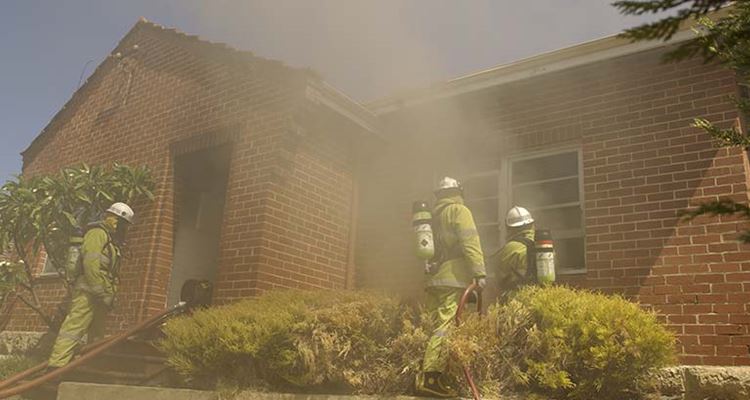DFES alarmed at residential structure fire statistics

The Department of Fire and Emergency Services (DFES) is urging Western Australians to ensure their home smoke alarms are in working order with today – the first day of winter – an ideal time to conduct a routine inspection of devices.
DFES Deputy Commissioner Craig Waters AFSM said that WA firefighters had responded to an average of three residential structure fires a day over the past 12 months, highlighting the importance of a Smoke Alarm Action Day.
“Of the more than 1100 residential structure fires DFES has attended, 52 per cent of properties didn’t have working smoke alarms or any alarm installed at all,” he said.
“When you sleep you lose your sense of smell but a small fire can engulf a room in just two to three minutes. Only a working smoke alarm will wake you up and give you vital time to escape.
“If you’re not regularly checking that your smoke alarms are in working order, you’re playing with fire, putting your life and the lives of your loved ones at risk.”
Deputy Commissioner Waters said it was important that people in rural and regional areas had working smoke alarms and everyone knew what to do if there was a fire in the home.
“In regional areas, emergency services often have to travel considerable distances to respond to house fires,” he said.
“Smoke alarms and a plan can give you the valuable seconds needed to make it out alive.”
While research shows most people understand smoke alarms are a legal requirement in WA, there is a lack of awareness of their responsibility to maintain the unit.
Change your smoke alarm battery every year if it has a replaceable battery, test it every month by pressing the ‘test’ button and wait for the alarm to sound, and clean it once a year with a vacuum cleaner to remove cobwebs and dust.
The Australasian Fire and Emergency Services Council (AFAC) recommends interconnected smoke alarms should be in all sleeping areas, living spaces and paths of travel (hallways, stairways).
DFES also recommends that smoke or heat alarms are installed in areas where lithium-ion devices are often charged, such as garages.
All smoke alarms, regardless of the type or model, need to be replaced every 10 years. For more information, visit www.dfes.wa.gov.au/hazard-information/fire-in-the-home/smoke-alarms

